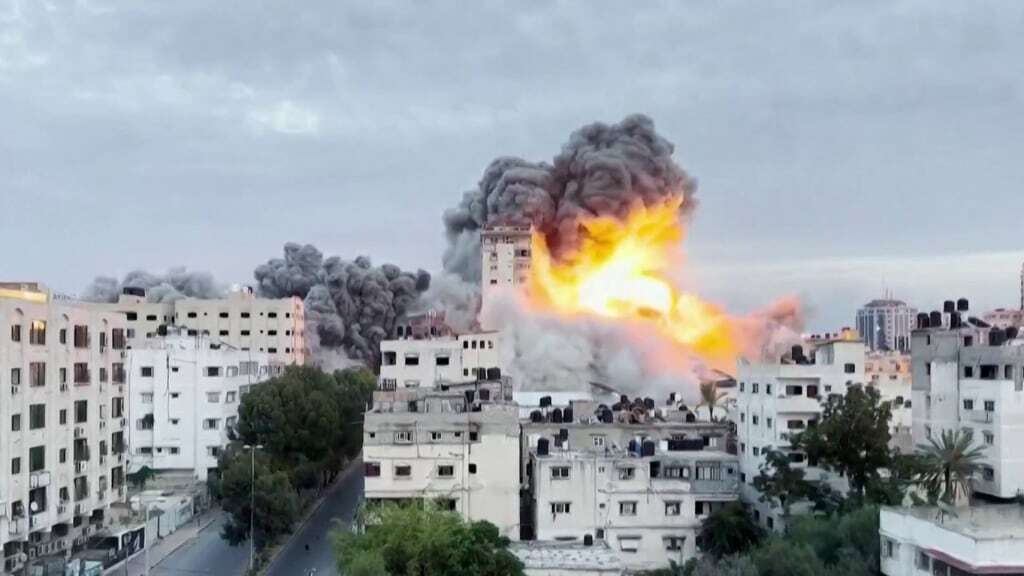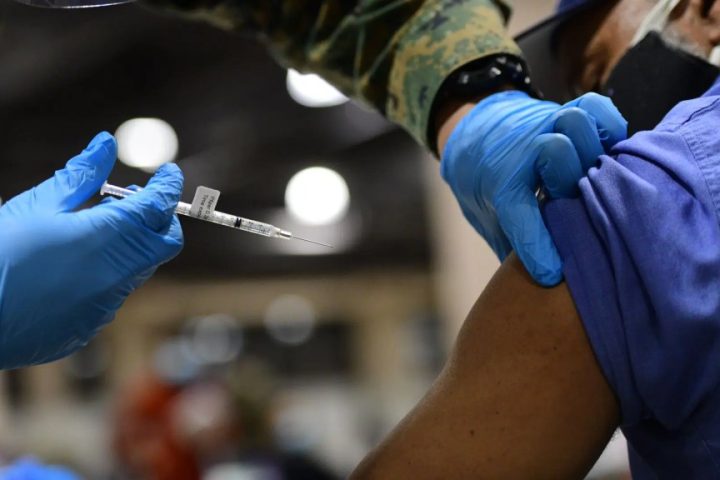As Israel-Hamas conflict enters the 11th week, the death toll in Gaza has now surpassed a devastating 20,000 people, with civilians bearing the brunt of the violence, Gaza health officials say.
This is as the United Nations has raised the alarm over catastrophic hunger levels and health collapse as the humanitarian crisis deepens in the strip
Join our WhatsApp ChannelThe conflict, marked by intense airstrikes, rocket attacks, and ground clashes, has left thousands of homes and infrastructure in ruins. Hospitals are overwhelmed, and the healthcare system has collapsed as medical supplies run critically low. Civilians, including women and children, continue to suffer disproportionately in the crossfire.
Gaza’s Health Ministry said on Friday that it has documented 20,057 deaths in the fighting that was triggered by the October 7 Hamas terrorist attack on Israel.
READ ALSO: ‘Situation In Gaza Strip Is Desperate’- UNRWA
The ministry previously said that roughly two-thirds of the dead were women or minors. According to it, 53,320 Palestinians have been wounded. Currently, More than 576,000 Gaza residents, about a quarter of the population of Palestinians face “catastrophic hunger and starvation,” an UN-backed report said.
The report indicates that the Gaza Strip, with a population of approximately 2.2 million people, is facing a severe humanitarian crisis. The entire population is experiencing crisis or worse levels of acute food insecurity. Specifically, 26 per cent of people from Gaza, totaling 576,600, have reached a critical situation where they have exhausted their supplies and coping capacities. This has escalated to the point of catastrophic hunger and starvation, classified as IPC Phase 5.
The Integrated Food Security Phase Classification (IPC) report is a crucial tool for assessing and responding to food security situations worldwide. It utilizes internationally-recognized scientific standards to analyze data and determine the severity of hunger crises.
According to the report, the situation will amount to famine in the strip if the issues are not remedied sooner.
READ ALSO: We’ll Crush Hamas In Gaza To Forestall Breeding Generation Of Another Terrorists – Netanyahu Vows
Heightened Humanitarian Crisis Squeezes Life out of remaining Gazans
UN agencies are warning that Gaza is in a desperate situation as millions are facing acute food shortages.
“We are behind. There is not enough food, every single person I speak to everywhere I go in Gaza is hungry,” WHO Emergency Medical Teams coordinator, Sean Casey, said while describing the situation in Gaza.
“The time is now. We are dealing with starving people now, adults, children, it’s unbearable. Everywhere we go, people are asking us for food even in the hospital, I walked around in the emergency department, somebody with an open bleeding wound, an open fracture; they asked for food. If that’s not an indicator of the desperation, I don’t know what is.”
“WFP (World Food Program) has warned of this coming catastrophe for weeks. Tragically, without the safe, consistent access we have been calling for, the situation is desperate, and no one in Gaza is safe from starvation,” said Executive Director Cindy McCain.
A press release from WHO revealed that Gazans have resorted to selling their possessions and other extreme measures “to afford a simple meal,” reiterating that “Starvation, destitution and death are evident.”
Explaining the health emergency in Gaza, WHO said: “Infectious diseases are thriving.”
According to WHO, out of 36 health facilities, only nine, all situated in the southern region of Gaza, remain partially operational.
Gaza is grappling with a sharp rise in infectious diseases, notably over 100,000 cases of diarrhea, predominantly affecting young children. The conflict has triggered a 25-fold increase in reported cases, WHO said, adding that other health issues, including respiratory infections, meningitis, skin problems, and suspected hepatitis, are prevalent. According to WHO, malnutrition, intensified by hunger, heightens the risk of death from diseases like pneumonia and measles, impacting long-term child development. WHO also emphasized the risks faced by breastfeeding mothers, jeopardizing infants who depend on breast milk for nutrition and disease protection.
Dr. Richard Peeperkorn, WHO Representative and acting UN humanitarian coordinator in the Occupied Palestinian Territory, emphasized the dire situation in the northern areas, where essential services, such as operating theaters, have ceased to function due to fuel, power, and medical supplies shortages. The lack of health workers, including surgeons and specialists, compounds the crisis. Speaking from Jerusalem, Dr. Peeperkorn highlighted the challenging conditions at Al Ahli Arab hospital, where approximately 10 staff, comprising mainly junior doctors and nurses, are providing basic first aid to around 80 patients seeking refuge in a church on the hospital grounds.
“Some of them are severely injured and have been waiting for surgery for two weeks or have been operated on but are now at risk of post-operation infection due to lack of antibiotics and other drugs. All these patients cannot move and need to be transferred urgently, to have a chance to survive,” Dr. Peeperkorn said.
As the situation in Gaza continues to deteriorate, efforts to broker a ceasefire and provide humanitarian aid have suffered setbacks. International leaders and organisations have condemned the escalating violence and called for an immediate end to hostilities, urging both Israel and Hamas to return to the negotiating table.
As the international community grapples with the unfolding crisis, there are renewed calls for a diplomatic resolution to address the underlying issues fuelling the conflict and the return of hostages.
Emphasizing the urgency of addressing the worsening humanitarian crisis in Gaza, UN Secretary-General, António Guterres stated on Thursday that the combination of “intense fighting, electricity shortages, limited fuel, and disrupted telecommunications” has significantly hampered the UN’s ability to deliver vital assistance to the population in the enclave.
In a tweet, the UN chief stressed the immediate necessity of restoring conditions that would enable large-scale humanitarian operations to take place.


















Follow Us